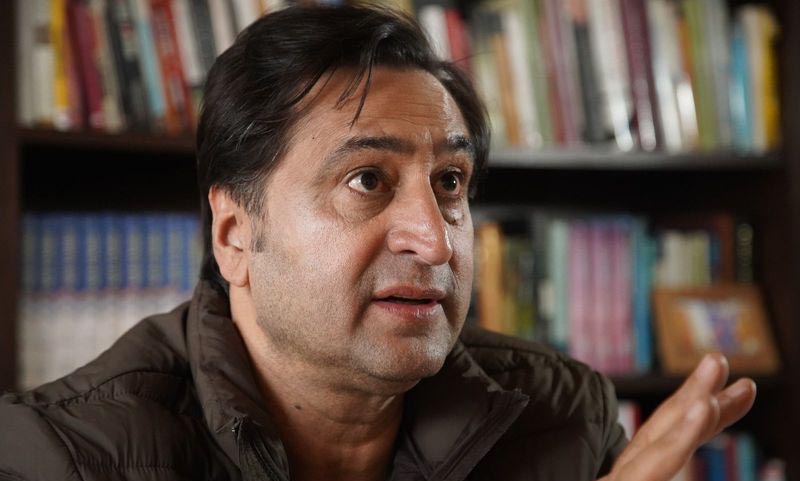Controversy Erupts: Kashmir Policy Sparks Comparisons to ‘Israeli Model
By: Javid Amin
A recent suggestion by a Jawaharlal Nehru University (JNU) scientist to emulate the ‘Israeli Model’ in Kashmir has ignited a firestorm of controversy. The proposal, endorsed by a spokesperson from the Israel Embassy in India, has drawn sharp criticism and sparked a heated debate online. The scientist, who defended the idea as a measure to prevent another tragedy like the genocide of Kashmiri Pandits, has faced a backlash from various quarters.
The Suggestion and Its Context
The JNU Scientist’s Proposal The JNU scientist’s suggestion centers on adopting strategies similar to those employed by Israel in its handling of conflict zones. The idea includes stringent security measures, settlement policies, and an assertive military presence to maintain control and prevent insurgency.
Endorsement from the Israeli Embassy A spokesperson from the Israel Embassy in India publicly supported the scientist’s suggestion, adding fuel to the already volatile debate. The endorsement implies a level of approval and encourages a re-examination of how conflict zones can be managed.
The Outrage and Defense
Online Backlash The suggestion has been met with significant outrage online, with critics arguing that the ‘Israeli Model’ is inappropriate and insensitive for the Kashmir context. Detractors highlight the ethical and humanitarian issues associated with Israel’s policies in the Palestinian territories, fearing similar repercussions in Kashmir.
Ranganathan’s Defense The scientist, identified as Ranganathan, defended the suggestion by invoking the tragic history of the Kashmiri Pandits. Ranganathan argues that adopting robust measures could prevent future genocides and ensure the safety and security of the region’s residents.
The ‘Israeli Model’: A Closer Look
What is the ‘Israeli Model’?
The ‘Israeli Model’ refers to Israel’s strategies in handling its security and political challenges, particularly in the Palestinian territories. Key components include:
- Military Presence: A strong, assertive military presence to deter insurgency and maintain control.
- Settlements: Establishing settlements in strategic locations to strengthen territorial claims and create buffer zones.
- Security Measures: Implementing stringent security measures, including checkpoints, surveillance, and intelligence operations to monitor and control movement.
Implications for Kashmir
Security and Stability Proponents argue that adopting similar strategies could enhance security and stability in Kashmir, preventing insurgent activities and protecting vulnerable populations.
Human Rights Concerns Critics point out the potential human rights violations that could arise from such an approach. They fear that heavy-handed measures could lead to widespread abuse, further alienating the local population and exacerbating the conflict.
Historical Context: The Plight of Kashmiri Pandits
Genocide and Exodus The Kashmiri Pandits, a minority Hindu community, faced persecution and violence in the late 1980s and early 1990s, leading to a mass exodus from the Kashmir Valley. This tragic history is often cited as a reason for adopting stringent security measures to prevent similar atrocities in the future.
Current Situation Today, many Kashmiri Pandits live as refugees within their own country, longing to return to their homeland. The proposal to emulate the ‘Israeli Model’ is seen by some as a means to ensure their safety and facilitate their return.
Voices of the Stakeholders
Government Stance The Indian government has not officially endorsed or rejected the proposal. However, it continues to emphasize a balanced approach, aiming to maintain security while upholding democratic values and human rights.
Local Perspectives The local population in Kashmir remains deeply divided on the issue. While some support increased security measures to restore peace, others fear further militarization and potential human rights abuses.
Ethical and Practical Considerations
Ethical Dilemmas Adopting the ‘Israeli Model’ raises significant ethical questions. The potential for human rights violations and the impact on the local population must be carefully weighed against the need for security.
Practical Challenges Implementing such a model in Kashmir poses practical challenges, including logistical complexities, international ramifications, and the risk of escalating the conflict.
The Path Forward: Seeking Balance
Dialogue and Engagement A balanced approach, involving dialogue and engagement with all stakeholders, is crucial. Ensuring the participation of local communities, human rights organizations, and international bodies can help in crafting a sustainable solution.
Sustainable Security Measures Developing sustainable security measures that respect human rights and democratic values is essential. Investing in community policing, intelligence sharing, and socio-economic development can contribute to long-term peace and stability.
Bottom-Line
The suggestion to emulate the ‘Israeli Model’ in Kashmir has sparked a complex and contentious debate. While the intention to prevent future tragedies like the genocide of Kashmiri Pandits is commendable, the potential ethical and practical implications of such an approach must be carefully considered. A balanced, inclusive, and human-centric approach is essential to address the unique challenges of Kashmir and pave the way for lasting peace.



